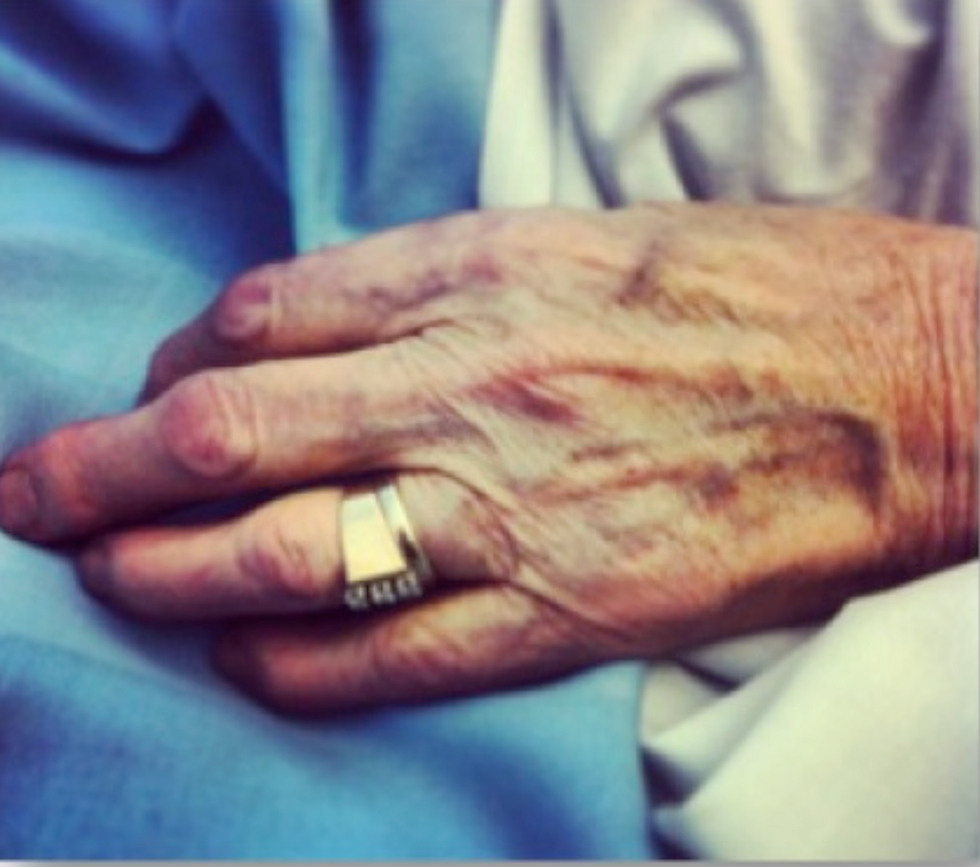Everybody Grows Up
- Sue Robins

- Jan 31, 2021
- 4 min read

Last week, Aaron and I were asked to present a plenary talk to the Children's Healthcare Canada's Transitions to Adulthood Pop-Up event. We were a last minute substitution for their original speaker who unfortunately had to cancel. (We don't mind being the Plan B). We had 24 hours to roll up our sleeves and craft a talk.
Thankfully, I've been thinking about transition a lot, because Aaron is almost 18 and I've recently had to fill out a bunch of complicated government forms to apply for funding for him.
My talk included these key messages:
How I don't like the medicalizing terms used with our kids, like siblings and peer support. I'd much rather call transition from youth to adult - growing up.
Why are the health and social services systems so freakin' complicated that you need a navigator to wade through them?
There are websites, road maps, toolkits, programs galore, but what we really need is connection to other families. Professionals can help facilitate these connections.
When disabled kids grow up, there is a lot of emotional stuff for families - worries that come to fruition - what are they going to do all day when school is done? Are they going to find love? A job? Move out? Also, a bonus glimpse into our own mortality - if our kids are growing up, this means we are getting old.
Maybe if the adult disability world was better, we wouldn't be so terrified about our kids growing up. Perhaps pediatric professionals could help us advocate for a better adult world.
My son's birth was treated as a tragedy by many people. I REFUSE to treat his growing up as a tragedy too. I reject what the government says his life is going to be, for they throw crumbs at him. Crumbs! And clearly they don't value him as a human being. But I sure do.
The best part of this speaking opportunity? We interviewed Aaron and created this short video where he speaks about growing up.
I also read this chapter from my book that is all about Aaron blossoming into a young man and becoming more himself.
Excerpt from Bird’s Eye View: Stories of a life lived in health care.
…Aaron...has got the teenage swagger. He’s sometimes sullen and often mortified by his mother, whether she had cancer or not. This is all the schtick of regular adolescence. The extra chromosome that comes with Down syndrome hasn’t affected this one bit.
I am ashamed to admit that when Aaron was first diagnosed, I began my job being his mom in deep grief about having a disabled kid. This is wholly due to my own ableism, my own stereotypes about people with disabilities. Interestingly, my husband rolled casually with Aaron’s diagnosis. One of my husband’s old girlfriends had a sister with Down syndrome, so he saw Aaron as a human being, just like everyone else. I struggled mightily with Aaron’s diagnosis for years, mostly treading water to keep on top of my own ignorance.
When Aaron was a wee sprog, he was full of energy. He beetled around everywhere, escaping from the house, digging cat litter into his dump truck, finding mischief wherever he went. He had sleep apnea for the first six years of his life, barely slept and required constant supervision.
I was one tired mother.
Slowly, slowly, as he got older, he settled down and matured. I think it took him a few years to get used to Planet Earth, which is often hostile to people with disabilities. If I’m honest, it took us all a while to get used to each other.
The recent teenage years have been challenging but wonderful. Everybody grows up. Why was it a shock when Aaron hit puberty? Had I thought he would remain a child forever? (I think so). It has been a joy to watch him blossom into a fledgling adult. He has become more himself, which is funny, quick with words, a snappy dresser and an emotionally astute people person.
He is a joy to be around.
Aaron will proudly tell you that he is an actor. He has been signed by a talent agent and has been auditioning for roles on film and television. He recently shot his first commercial. We are waiting for the entertainment business to catch up to the concept of diversity with disabled people. We know it is coming.
In the meantime, he is working on his craft. The improvisation community has welcomed him with open arms and he has regular sessions with an acting coach who believes in him. He goes to casting calls, chewing on his nails in the waiting room like all the other actors. He marches into the auditions alone and always ends up making the casting directors laugh.
I have moved through various stages of being the mother of a child with Down syndrome: from tolerance to acceptance and finally to celebration. We no longer care if people stare at Aaron in the mall. (And yes, they still do stare). We’ve taught him to stare right back. He’s a confident young man. He says that acting makes him feel alive. We will put our eggs in that basket and will take it as far as it goes.
As Natalie Merchant says in her song Wonder, with love, patience and faith, he will make his own way. Our children make their own way whether they have 46 chromosomes or 47. Aaron is his own man. And he’s going to be more than okay.
Interested in family and patient stories that boost compassion in health care?




Comments